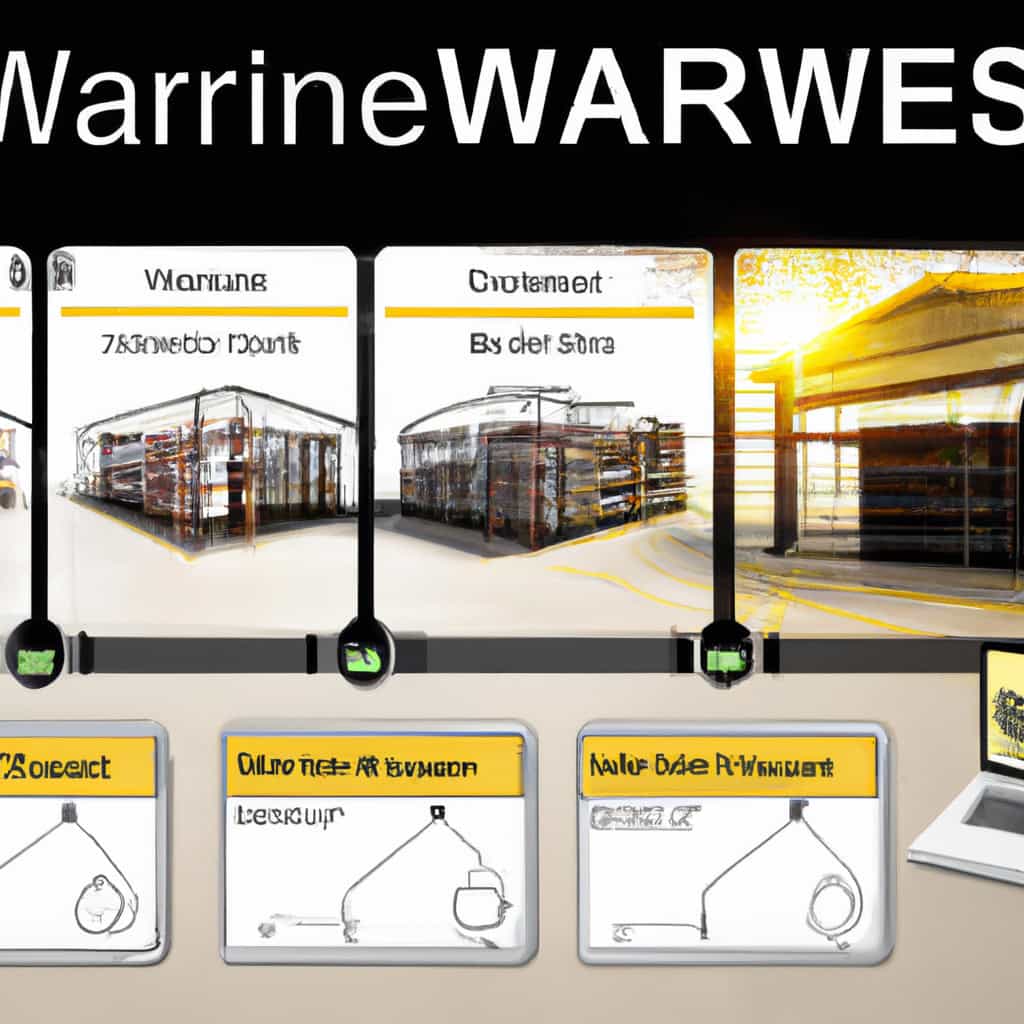In the pursuit of enhancing warehouse operations, organizations often seek effective solutions to optimize efficiency. This article explores the top five warehouse management systems (WMS) that can streamline operations and improve overall performance.
These systems offer a range of features, including inventory management, order fulfillment, logistics tracking, and reporting capabilities. By examining their functionalities, integration options, and scalability features, businesses can identify the ideal WMS that aligns with their specific needs.
Regardless of the size of the warehouse or distribution center, these WMS solutions empower organizations to optimize operations and provide outstanding customer service.
Key Takeaways
- Inventory management for accurate tracking of stock levels
- Order fulfillment features for seamless processing of customer orders
- Logistics tracking functionalities for real-time visibility into the movement of goods
- Reporting capabilities for generating comprehensive reports on inventory levels and overall warehouse performance
Key Features of the Best Warehouse Management Systems
The key features of the best warehouse management systems include inventory management, order fulfillment, logistics tracking, and reporting capabilities. These systems are designed to optimize warehouse operations and improve efficiency.
Inventory management allows for accurate tracking of stock levels, ensuring optimal inventory optimization and preventing stockouts or overstocking.
Order fulfillment features enable seamless processing of customer orders, from picking and packing to shipping and delivery.
Logistics tracking functionalities provide real-time visibility into the movement of goods, allowing for efficient coordination of transportation and delivery.
Reporting capabilities generate comprehensive reports on inventory levels, order processing times, and overall warehouse performance, providing valuable insights for decision-making and continuous improvement.
Understanding the Functionalities of Top Warehouse Management Systems
Functionalities of top warehouse management systems encompass various features such as inventory management, order fulfillment, logistics tracking, and reporting capabilities. These systems aim to optimize warehouse operations and improve efficiency.
By integrating these functionalities, businesses can effectively manage their inventory by tracking and organizing stock levels, ensuring accurate and timely order fulfillment.
Additionally, warehouse management systems provide real-time visibility into logistics operations, enabling businesses to track and monitor the movement of goods throughout the supply chain.
These systems also offer robust reporting capabilities, generating insightful data that can be used for performance analysis and decision-making.
While cloud-based warehouse management systems offer advantages such as scalability, flexibility, and accessibility, their implementation may face challenges such as data security concerns and integration complexities with existing systems.
Overcoming these challenges is crucial to fully harness the benefits of warehouse management systems and optimize warehouse operations.
Integration Options for Streamlining Warehouse Operations
Integration options for streamlining warehouse operations involve the seamless merging of different software systems and technologies to enhance efficiency and productivity.
By integrating warehouse management systems (WMS) with other systems such as enterprise resource planning (ERP) software, automated inventory management can be achieved. This integration allows for real-time tracking of inventory levels, enabling warehouse managers to optimize stock levels and prevent stockouts or overstocking.
Additionally, integrating WMS with transportation management systems (TMS) enables better coordination of inbound and outbound logistics, resulting in improved order fulfillment and reduced delivery times.
The integration of WMS with barcode scanning or RFID technology enhances accuracy and speed in inventory management and order processing.
Scalability Features to Consider When Choosing a Warehouse Management System
Scalability features should be carefully considered when selecting a warehouse management system, as they allow for the system to adapt and grow alongside the evolving needs of the business. When evaluating different warehouse management systems, it is important to assess their flexibility advantages and expansion capabilities. Here are four key scalability features to consider:
-
System Capacity: The chosen warehouse management system should have the capacity to handle increasing volumes of inventory and orders as the business grows.
-
User Scalability: The system should be able to accommodate an expanding user base, allowing additional employees to access and utilize the system as needed.
-
Integration Flexibility: The warehouse management system should have the capability to integrate with other business systems, such as enterprise resource planning (ERP) software, to support seamless data exchange and streamline operations.
-
Customization Options: The system should offer customization options to cater to the specific needs of the business, enabling it to adapt to changing processes and requirements.
Delivering Exceptional Customer Service With the Right WMS Solution
When implementing the right WMS solution, businesses can enhance their customer service by effectively managing inventory, streamlining order fulfillment, and optimizing logistics and tracking processes.
A warehouse management system offers a range of features and functionalities that contribute to increasing warehouse productivity and improving order accuracy. These systems provide real-time visibility into inventory levels, allowing businesses to efficiently manage stock and avoid stockouts or overstock situations.
By automating the order fulfillment process, WMS solutions enable faster and more accurate order processing, reducing errors and improving customer satisfaction. Additionally, WMS systems facilitate efficient logistics and tracking processes, ensuring timely delivery of orders and providing customers with accurate tracking information.
Overall, utilizing a WMS solution can optimize warehouse operations, improve efficiency, and ultimately deliver exceptional customer service.
Conclusion
Optimizing warehouse operations is crucial for businesses, whether they are small warehouses or large distribution centers. By implementing the right Warehouse Management System (WMS), businesses can streamline their operations, improve efficiency, and deliver exceptional customer service.
The five best WMS solutions offer features such as inventory management, order fulfillment, logistics tracking, and reporting capabilities. With their functionalities, integration options, and scalability features, these WMS solutions can empower businesses to optimize their operations and achieve remarkable results.
Choose the ideal WMS that aligns with your business’s specific needs and witness the transformation it brings to your warehouse operations.
